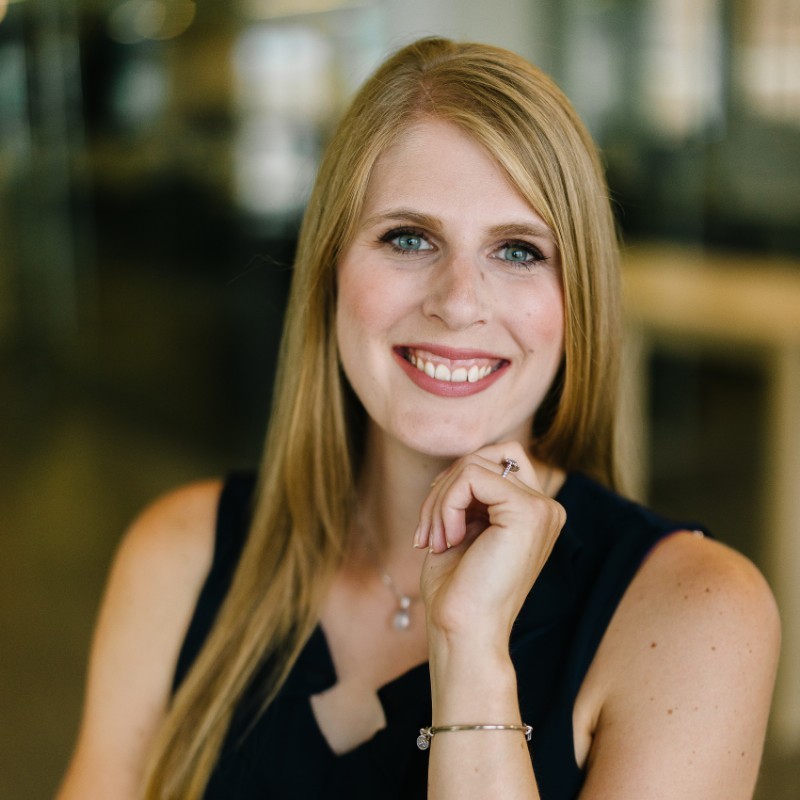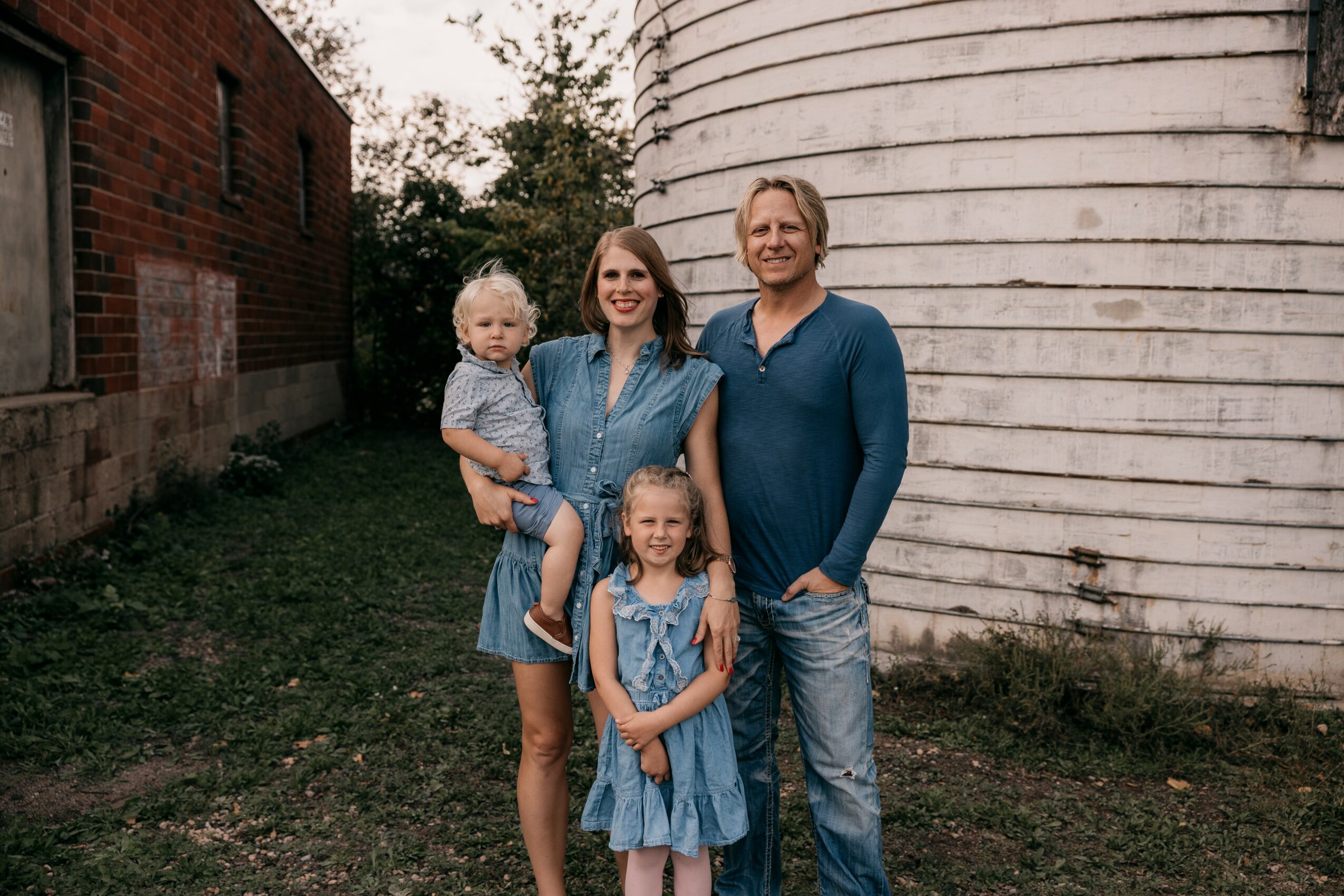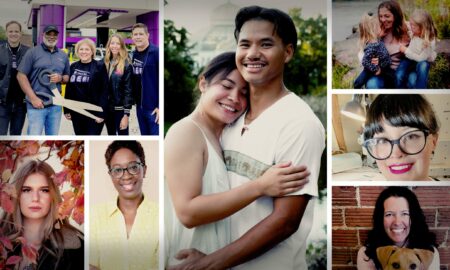

We recently had the chance to connect with Katie Hickman and have shared our conversation below.
Katie , a huge thanks to you for investing the time to share your wisdom with those who are seeking it. We think it’s so important for us to share stories with our neighbors, friends and community because knowledge multiples when we share with each other. Let’s jump in: What do you think is misunderstood about your business?
One major misconception about running a strategic communications business is that successful internal communications simply means sending more updates and messages from leadership. What many organizations overlook is that employees don’t just want information, they want to know what it means for them. Leadership may focus on strategy, brand, and key messages, but employees’ primary questions are: How does this affect my day-to-day work? What changes? What’s expected of me? That gap between the senior team’s narrative and front-line employees’ reality is where internal communications too often fails.
In reality, many organizations struggle with this. A recent Axios study found that only 14 % of employees feel entirely aligned with their organization’s objectives. This disconnect typically stems from two issues: first, leadership communicates the “what” but not the “so what” for individual roles, and second, communication is treated as a one-way broadcast rather than a two-way conversation. As a strategic communications consultant, I partner with clients to ask questions, listen, adapt, and tailor messages based on what employees actually need to hear, not just what leaders want to say.
Internal communications is not one-size-fits-all. Employees in different departments, locations, roles and levels are looking for different information that relates to their roles. A successful internal comms strategy doesn’t end at sending an announcement. It builds in feedback opportunities, identifies what people want to know more about, where there are concerns and how to tackle some of the biggest engagement challenges.
Without that iterative, audience-aware process, most companies fall short communicating to employees, leading to disengaged staff, misaligned objectives and wasted communication efforts.
Can you briefly introduce yourself and share what makes you or your brand unique?
As a strategic communications consultant with over 15 years of experience, I collaborate with clients to craft tailored strategies that amplify brand visibility, drive business growth, and position leaders as forward-thinking innovators. My expertise spans internal communication, change management, and integrated marketing, ensuring organizations can seamlessly navigate complex challenges, while fostering clarity and confidence among stakeholders.
Drawing on diverse experiences across corporate, media, small business, and agency environments, I develop actionable solutions to improve brand positioning and enhance strategic messaging. By creating integrated communication strategies and counseling senior leaders on thought leadership opportunities, I empower businesses to unlock measurable opportunities for sustainable growth.
Appreciate your sharing that. Let’s talk about your life, growing up and some of topics and learnings around that. What part of you has served its purpose and must now be released?
The part of me that has served its purpose and I have released, is the drive to climb the ladder just for the sake of progression. Early in my career, I was laser-focused on job titles, promotions, and the next big step. I had this idea that success meant constantly moving upward, and I used to say I wanted to be a CMO someday. That ambition served me for a time. It fueled my growth, pushed me to learn, and helped me build incredible experience that has brought me to today. But eventually, I realized that chasing titles wasn’t truly aligned with what I wanted from my career or my life.
That realization became especially clear after having my first child. Stepping back from the constant forward motion gave me space to reflect on why I was doing the work, not just how far I was getting. What I found was surprisingly simple but deeply meaningful: I wanted to do good work, for good people, that made a difference. The title on my business card stopped mattering; what mattered was impact, connection, and integrity.
Now, my fulfillment comes from walking alongside clients and helping them navigate complex challenges with confidence and calm. I’ve learned that influence doesn’t require hierarchy, and leadership isn’t confined to a title. Releasing that need to prove myself through position has made space for a more grounded, purpose-driven version of myself, one who measures success not by promotion, but by the positive change I help create.
If you could say one kind thing to your younger self, what would it be?
If I could say one kind thing to my younger self, it would be: your best is enough. You don’t have to prove your worth by doing more, saying yes to everything, or chasing perfection. The constant striving might feel like strength, but it’s actually exhausting. I’d remind myself that doing your best, whatever that looks like in the moment, isn’t something to apologize for. It’s something to be proud of.
I’d also tell her to find the resources and support earlier to start believing that truth. Whether that means therapy, mentorship, or self-reflection, investing in understanding and caring for yourself is essential. I spent too much time thinking personal growth was something that came after career success, when in reality, it’s the foundation for it.
Most importantly, I’d tell her that the best investment you can make is in yourself. The time, energy, and care you pour into becoming self-aware, confident, and kind to yourself will ripple through every part of your life.
Next, maybe we can discuss some of your foundational philosophies and views? What’s a cultural value you protect at all costs?
A cultural value I protect at all costs is doing what is right, not just what is asked. It’s easy in professional environments to focus on meeting expectations, checking boxes, and simply producing what you’re asked to. But real integrity comes from being willing to push back, ask hard questions, and challenge direction when something doesn’t feel right. Not only does it often lead to a better outcome, but its the responsibility as communicators, as leaders, as people to stop and use our judgment, not just deliver.
That means being unafraid to go against the grain when necessary. Speaking up, even when it’s uncomfortable, often leads to better outcomes because it forces clarity, reflection, and accountability. I’d rather have a tough conversation rooted in honesty than deliver work that misses the mark because no one wanted to question the approach.
Protecting this value isn’t always easy, but it’s essential. Doing what’s right builds trust, earns respect, and ensures that decisions are made with integrity rather than convenience. It creates a culture where people feel empowered to think critically and contribute authentically, not just follow instructions, but help shape the right path forward.
Okay, so let’s keep going with one more question that means a lot to us: What will you regret not doing?
What I’ll regret most is not taking the risk and putting myself out there when it mattered. It’s easy to stay where it’s safe, to make choices that feel predictable and comfortable. But I’ve learned that growth only happens when you step into uncertainty, when you’re willing to be seen, to try, and to risk getting it wrong. I don’t want to look back and wonder what could have happened if I’d just had a little more courage to take the leap.
The moments that have shaped me most were the ones where I took a risk, trusted myself, and learned through the stumble. I’ve shifted my mindset of fear of failure to fear of not being willing to try. I want to live a life that values courage over comfort, where putting myself out there isn’t a risk to avoid but an opportunity to grow.
Contact Info:
- Website: https://www.confluentcommunications.com
- Linkedin: https://www.linkedin.com/in/katiehickmancommunications/













